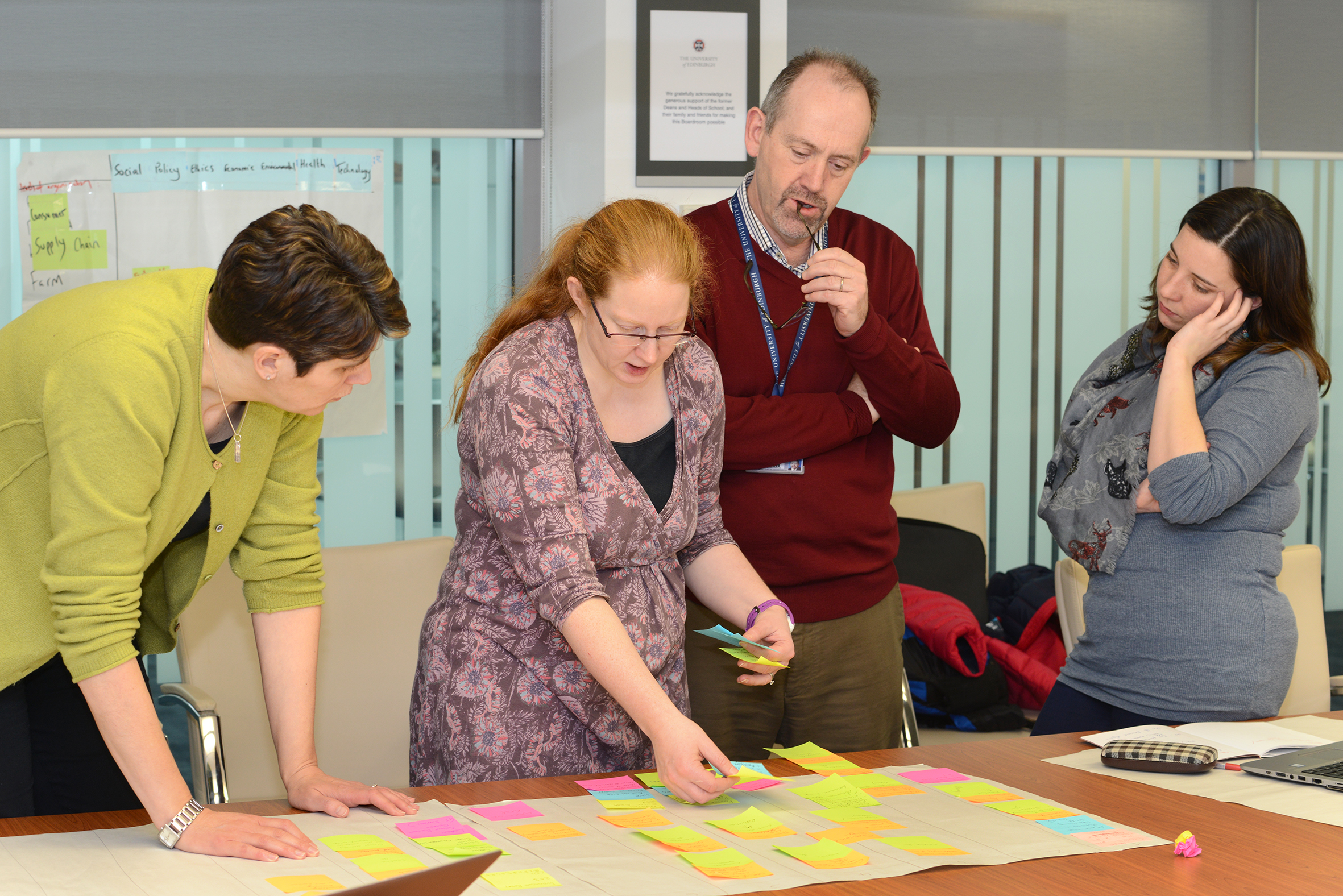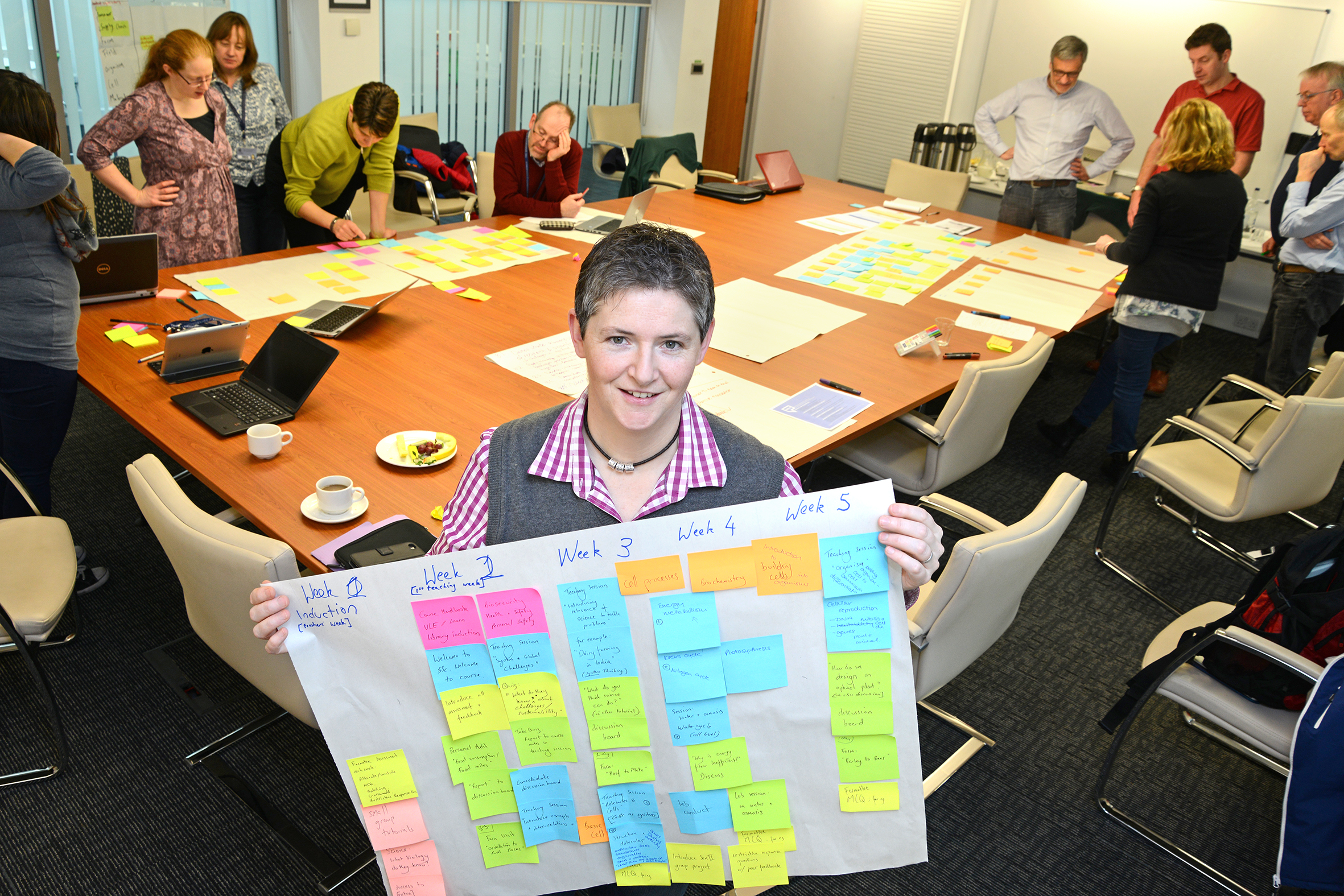
The Directors of Teaching Network is a new initiative started by the Assistant Principal for Assessment and Feedback, Professor Susan Rhind in 2016. The network brings together Directors of Teaching (or DoTs) and other interested teachers from each school in the University for quarterly meetings. Directors, who have strategic oversight in teaching at the school level, can update each other on their local experiences, wins and challenges in learning and teaching, and discuss various university initiatives and resources that may help, allowing practice to be shared across colleges and disciplines.
The first meeting in February 2016 included introductions to each school and their major achievements and challenges in assessment and feedback. This was followed by a panel discussion and an overview of some university resources such as Leading Enhancement in Assessment and Feedback (LEAF) and online tools. The overview was a great way of sharing with Susan and each other what was going well in each school and what the common issues were across disciplines.
The second meeting covered an update on guidelines of Assessment and Feedback quality and more on online tools that can help with assessment literacy and a discussion of the University’s 15 day turnaround policy for feedback. This meeting highlighted that the network works well as a place in which the ground level experience of teachers’ application of University policies can be shared and reflected on.
In September 2016 Sally Brown, an assessment, learning and teaching in higher education consultant, was invited to speak. Her talk involved a reflection on that year’s National Student Survey (NSS) scores and what the individual challenges and goals were for each school. A lively discussion followed among the DoTs about how we can embed more opportunities for feedback into the curriculum, and what schools can do immediately, in the short-term and in the long-term to improve assessment literacy across the university.

The most recent session in February 2017 was particularly well received by the participants. There was a general update from Susan and a chance for DoTs to highlight any issues in their school. The mid-semester student feedback on their courses seemed to be welcomed by most as a way to gather student feedback and for staff to act on this feedback while the course was still running, addressing the immediate and short-term goals from the September meeting. There was also a discussion around the merits and challenges of lecture recording. This update was followed by some presentations on different ongoing projects: an update on LEAF and its findings, the results of NSS 2016 comments analysis, a summary of the Edinburgh Learning Design Roadmap (ELDER) course design process, and an introduction to student data dashboards. The discussion that followed indicated that DoTs were eager to have more tools to evaluate their learning and teaching, and the feeling in the room was one of optimism and interest in the various ongoing projects.

It has been great to witness the increased rapport between and engagement of the participants at these meetings over the past year. As is often the case with networks, the chatting over coffee can be as informative as the planned sessions. Although these began as a way to discuss ongoing challenges around assessment and feedback they have evolved into more general discussions around learning and teaching at the University of Edinburgh and a place to brainstorm and test ideas. From our perspective as education researchers, this network certainly feels like an effective way of disseminating information on university projects and resources that can help schools develop their learning and teaching strategies. Sharing common strengths and opportunities is a great way to spread good practice throughout the university and improve the experience of our students.
The next meeting is in May 2017 and will be looking at opportunities for staff development such as the Postgraduate Certificate (PgCert) in Academic Practice (PgCAP) and peer observation.





